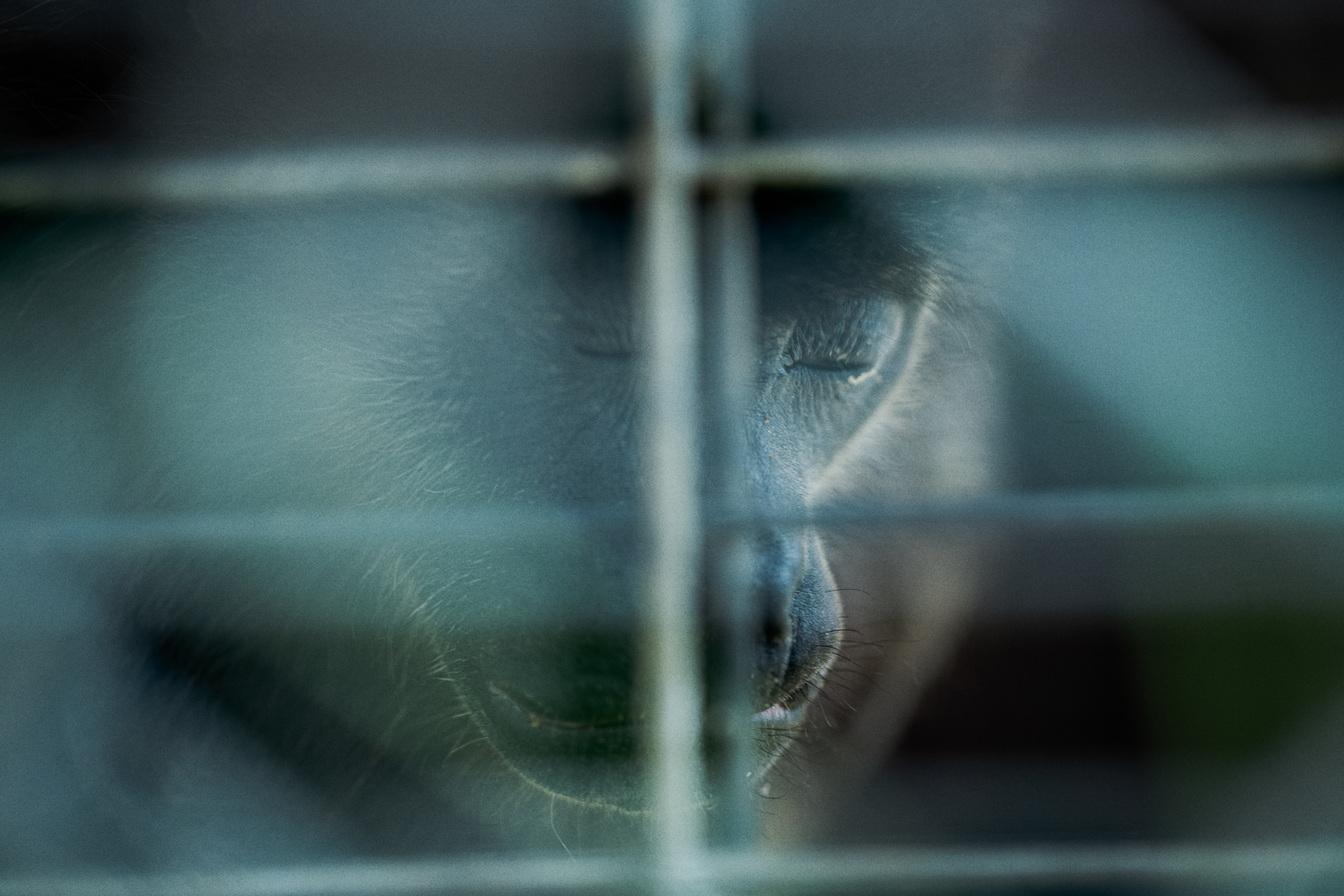
Guayaquil is Ecuador’s largest city and its main port, but prioritising its urban, political and economic interests has had a severe impact on a number of endemic species. Two of the most serious problems are linked to trafficking and the uncontrolled growth of urban developments into the surrounding forest and estuary. The Sacha Rescue Foundation was established to protect wildlife and now receives a large number of species that it aims to return to the wild or transfer to conservation centres. Many of the arrivals come from illegal trafficking and possession, but the majority are a direct result of urban, industrial and agricultural expansion. The length of their stay at the centre depends on their individual circumstances and difficulties in the relocation process can extend their confinement. Despite these challenges, the constant efforts of the Foundation mean that some animals are successfully reintegrated, although many others await an uncertain future.
Studied Visual Communication and then specialized in Cinematography Direction in Argentina. In Brazil (2013) completed a Master's Degree in Photography. Mexico (2015) enters the CI Contemporary Photography Seminar. Wins the scholarship in photography from EFTI and moves to Madrid (2017). Forms his project The Animal Human Project (2019). Worked as a teacher at UARTES (2021), and finishes her Master's Degree in Documentary Film, making her first documentary on the wildlife of Guayaquil (2024).

Olaf, a howler monkey, was rescued from a farm. He is waiting to be transferred from the Foundation to a reserve – he will never be released back into his natural habitat.
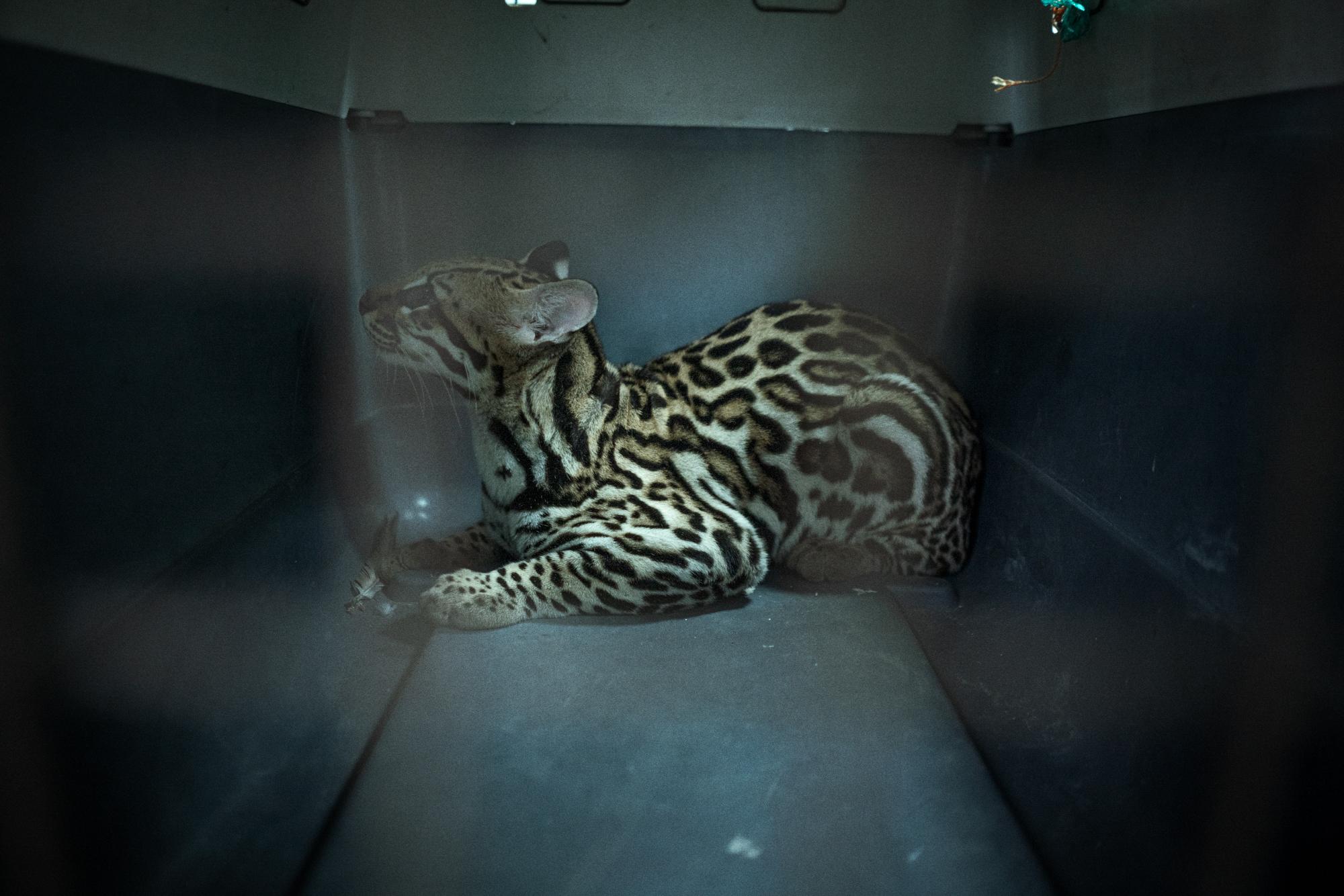
Pumira was rescued as a baby and now waits in a cage to be transferred to the rehabilitation centre. There, the Foundation has cages for the rehabilitation and release of margays like Pumira.
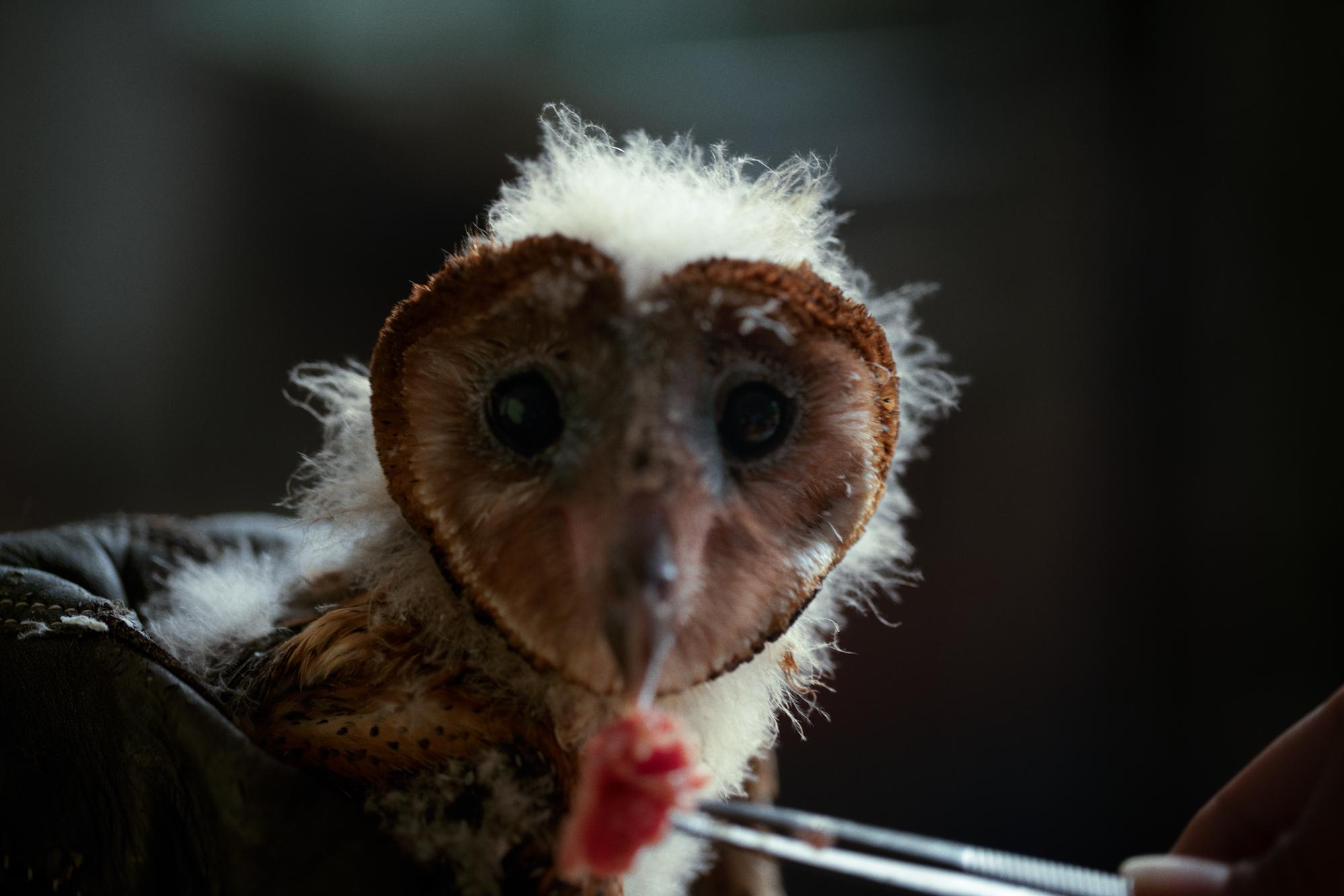
Owls are a very common arrival at the Foundation. They nest on the roofs of houses, and people think of them as devils or a bad omen because of the sound they make. When the environmental police are called, they take the owls to the Foundation.
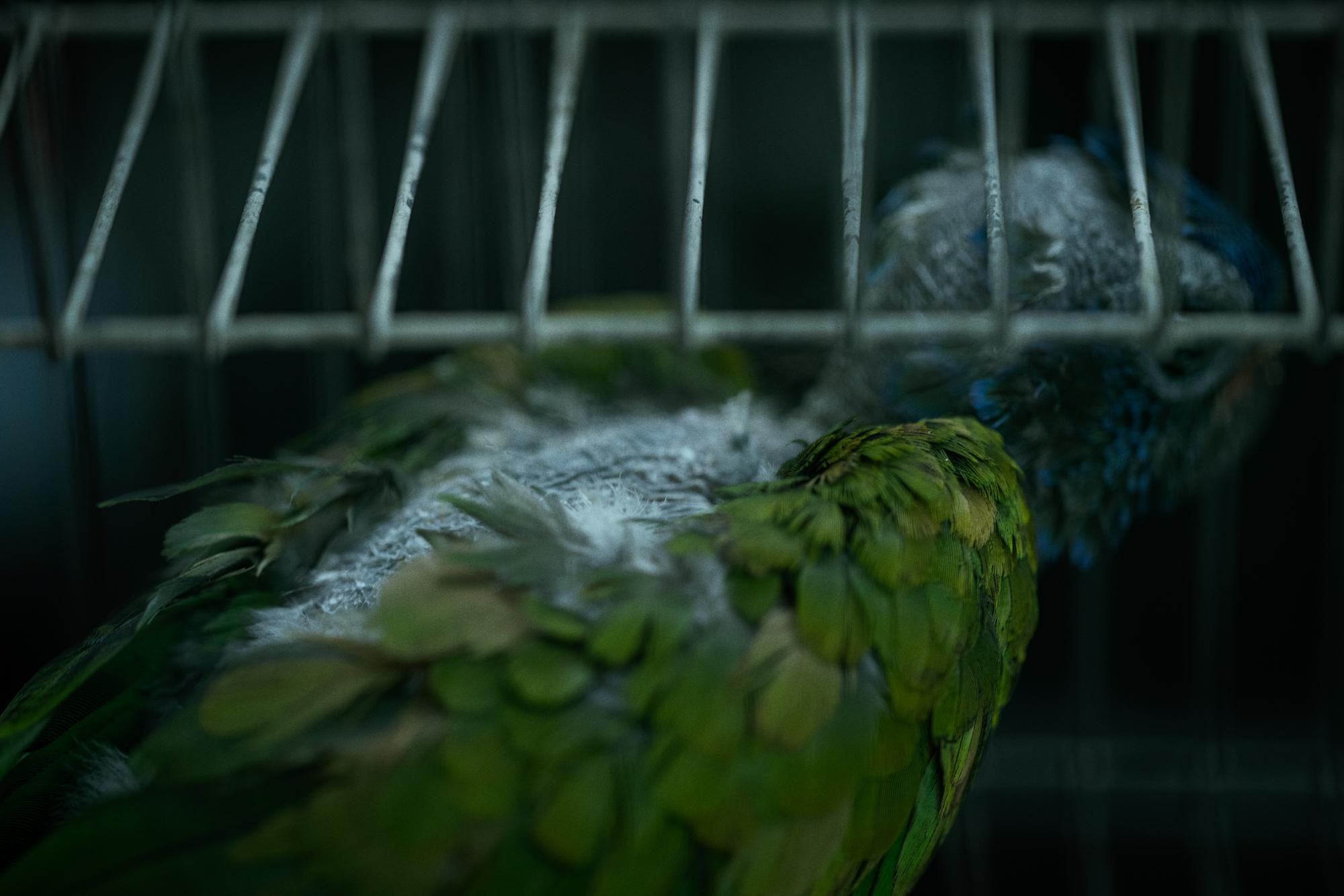
Parrots are among the most common animals in wildlife trafficking. Currently, the Amazonian blue-headed parrot is the species most heavily trafficked in Ecuador's large cities such as Guayaquil.
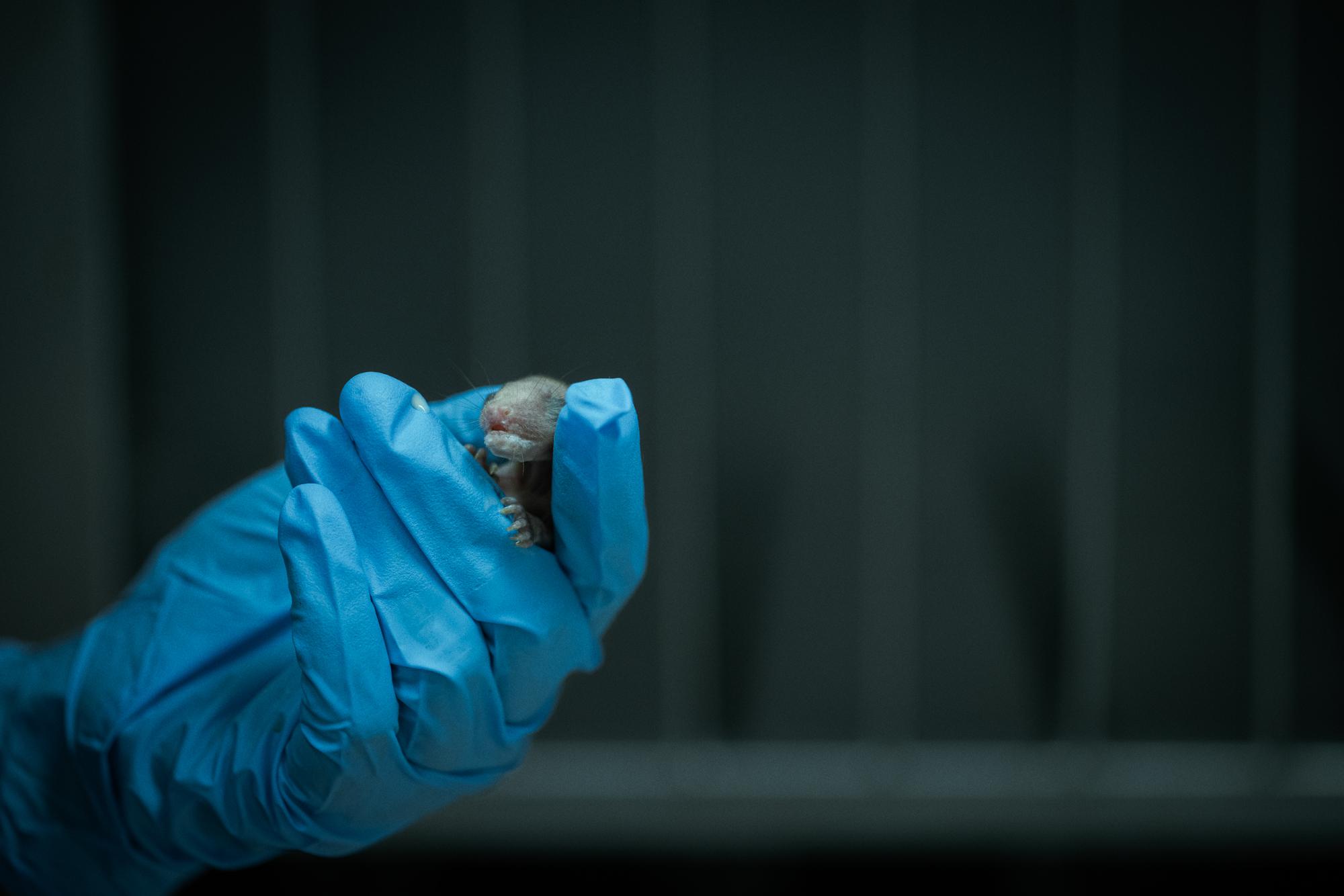
Many people kill possums because they consider them rats or dirty animals, which leaves their young unprotected. At the Foundation, the interns spend several hours each day feeding orphaned possums.
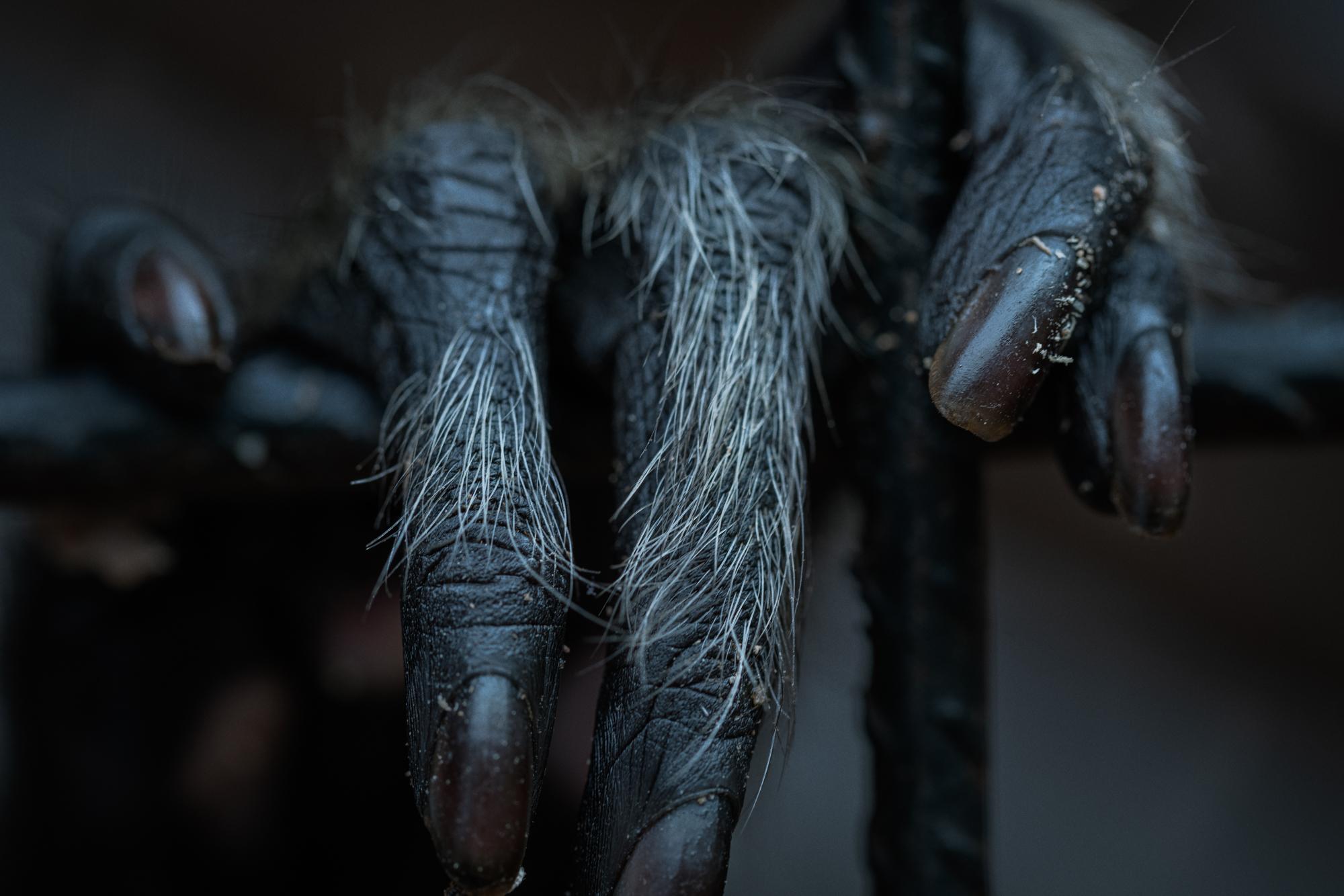
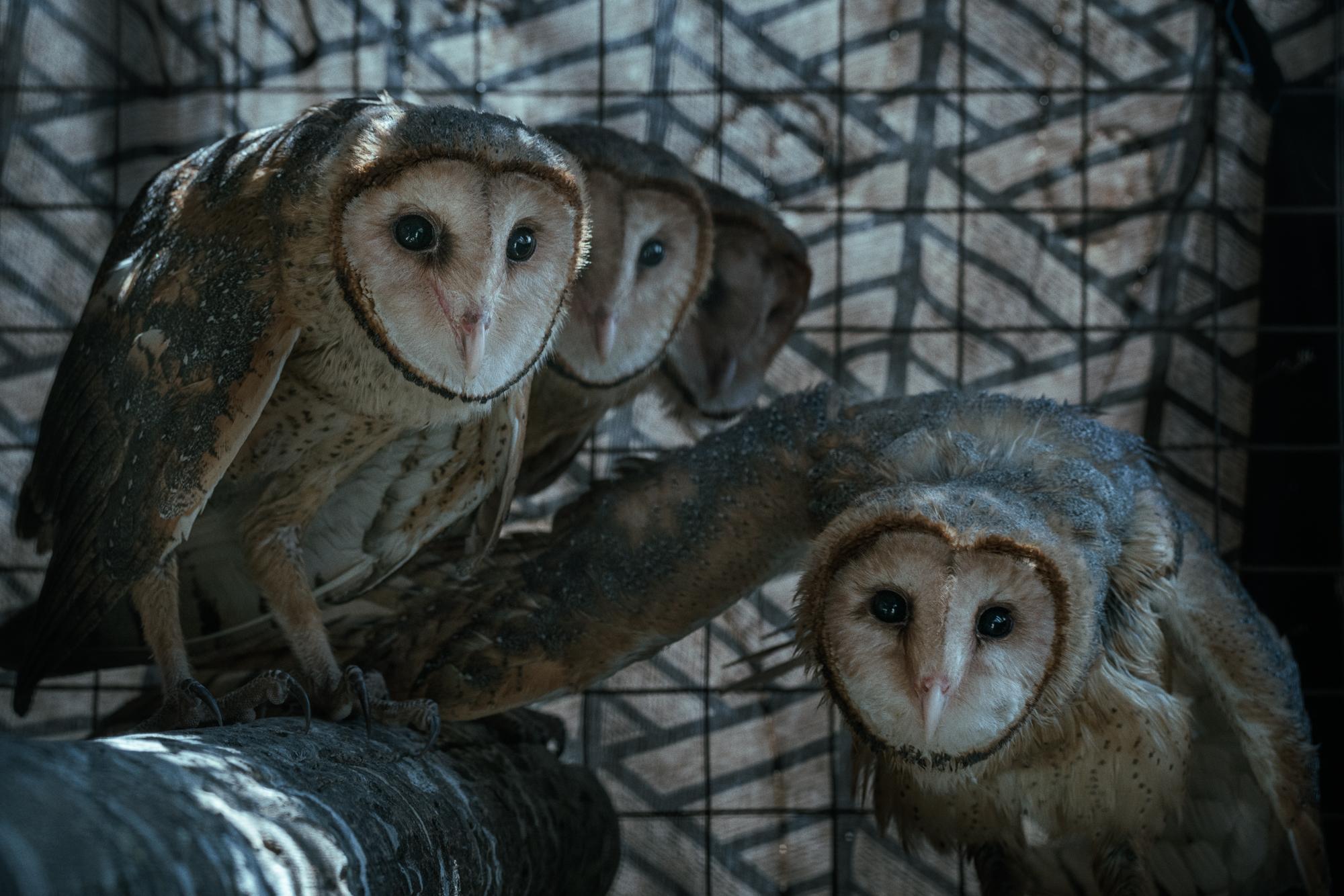
Recovered owls, waiting for the day of their release.
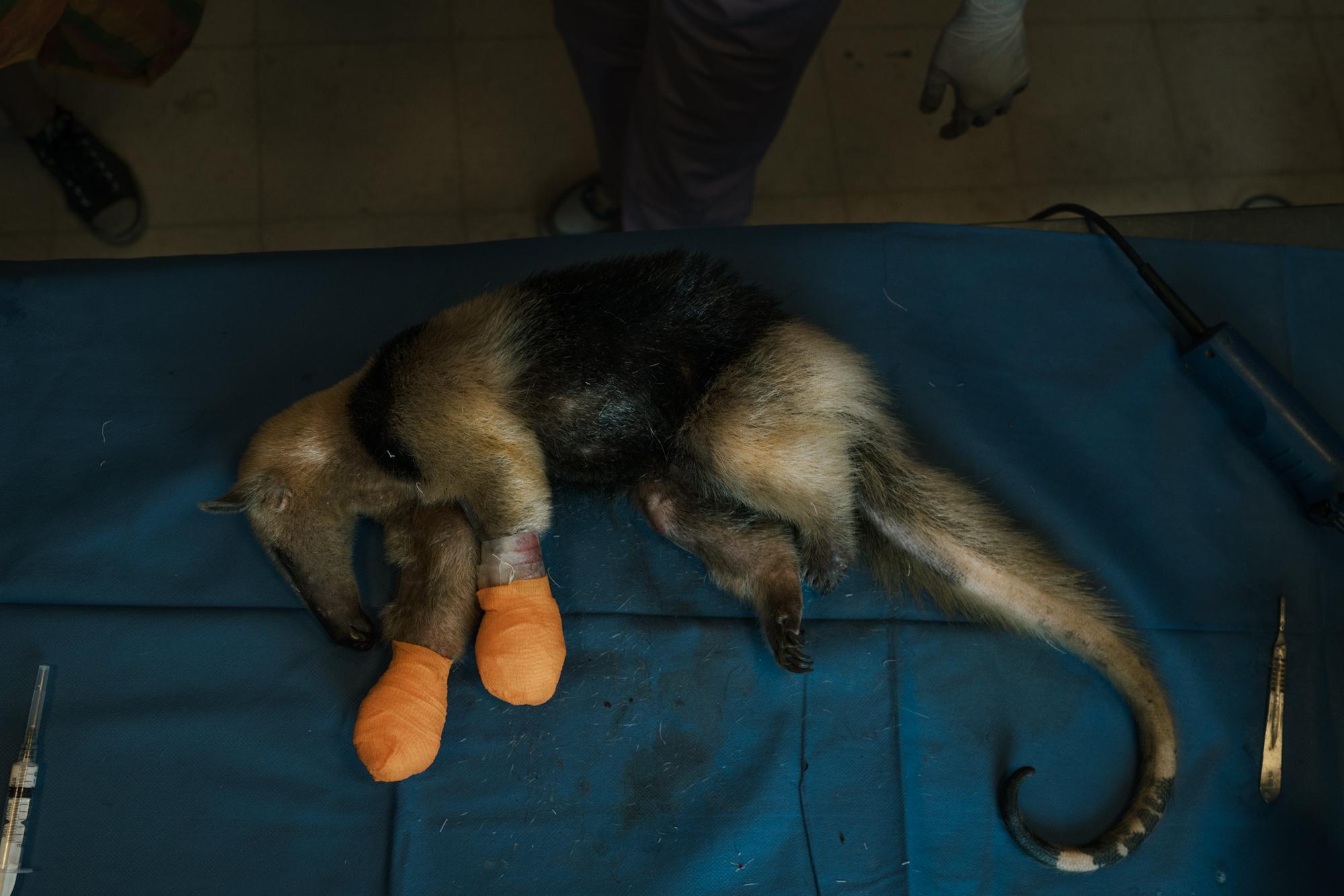
A rescued anteater arrives at the Foundation, having been electrocuted by a light pole.

